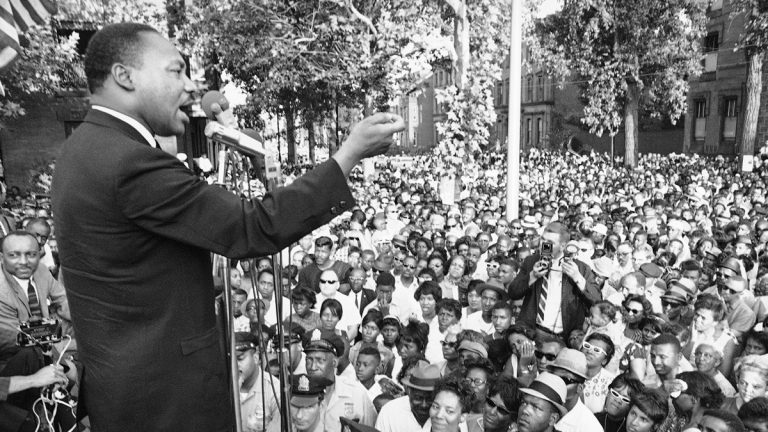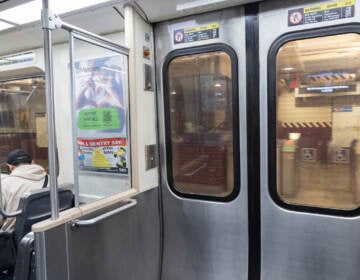50 years later, researchers proves Martin Luther King right: Segregation harms all Americans

Before his tragic assassination 50 years ago on April 4, 1968, Martin Luther King Jr. cautioned that both minorities and whites who live in segregated communities are exposed to higher levels of pollution than those who live in more integrated areas, the New York Times reports.
While James Earl Ray’s bullets would kill King before the modern environmental movement, “a growing body of research around pollution and health shows that his belief about segregation” hurting the nation as a whole was spot on. In fact, the NYT reports, “researchers have known since at least the 1980s that black and Hispanic communities have higher levels of pollution and its associated harmful health effects than white communities, even when controlling for income.” Of course, the negative effects of air pollution, water pollution, and even noise pollution know no racial or income lines, and “the price that America must pay for the continued oppression of the Negro is the price of its own destruction,” Dr. King wrote in a 1962 address, “An Analysis of the Ethical Demands of Integration.”
Racial divide, subsequently, disenfranchises everyone in the community, distracting residents from successfully aligning to stop polluting industries that locate in places with less political clout, the NYT writes. “In a community where there are really stark racial tensions it’s going to be really difficult to organize a large enough group to fight back against exploitative industries or corporations that don’t want to do their fair share to take care of environmental hazards,” said Dr. Brandon M. Terry, an assistant professor of African and African-American studies at Harvard.
In honor of Martin Luther King Jr. Day in January, PlanPhilly reporter Catalina Jaramillo reported on how President Trump’s environmental policies endanger a key source of support for environmental justice work in Philadelphia. Jaramillo takes readers to the Overbrook Environmental Education Center in West Philadelphia, where an Environmental Protection Agency program that has since been defunded by Trump helped support “a major public education campaign that raised awareness about waste, water quality, lead and pollution in three Philadelphia zip codes: 19131, 19139, 19151.”
Jerome Shabazz, who runs the Overbrook Center, regards King’s pioneering environmental justice as a daily inspiration. “He sees himself as carrying King’s legacy by lifting vulnerable communities with information and knowledge,” Jaramillo writes.
“’He gave them voice, and it’s important for all of us to keep that voice alive,’” Shabazz said.
The revival of Chew Avenue in Mount Airy
The rehabilitation of two buildings on changing Chew Avenue in Mount Airy is part of a nascent residential real estate upswing and, “according to local leaders, represent a watershed moment in the corridor’s evolution,” the Philadelphia Business Journal’s Alison Burdo reports. Chew connects the traditional working-class part of Germantown to a more affluent section of Mount Airy and over the years has acquired the nickname of “‘forgotten avenue,’” says Jordan Parisse-Ferrarini, executive director of Trades For A Difference, a nonprofit that trains local youth in carpentry, plumbing, and electrical skills. The nonprofit acquired the two Chew Avenue buildings for $50,000 two years ago and on Tuesday, unveiled their complete renovation into new offices and a Community Learning Center run by the organization. “There aren’t always resources for middle neighborhoods to do improvement activities, so you have to be very entrepreneurial in a way,” said Brad Copeland, executive director of Mt. Airy USA. Parisse-Ferrarini’s organization can expect lots of activity in its new digs. Between 2015 to 2017, Chew saw an increase in home sales and the average and median sale prices for houses more than doubled, according to information provided by Houwzer LLC Senior Economic Advisor Kevin Gillen.
Why Fair Food Farmstand’s closure is a mission win
When Fair Food Farmstand set up its stand at Reading Terminal Market in 2003, Philadelphians had few options when it came to shopping for fresh, local produce. Fifteen years later, green eaters have their pick among numerous purveyors including a Mom’s Organic Market that opened a short walk from the market in the fall and the nonprofit vendor started by Judy Wicks, founder of White Dog Cafe, and Ann Karlen is closing down shop. But while the stand will be missed, its demise demonstrates the growth of the local food economy they were created to support, reports the Philadelphia Inquirer’s Michael Klein. Klein describes the organization as a ‘victim of its own success.”
Shutting down the farmstand is “‘our way of adapting to the changes in the marketplace as well as the changes we are making internally to better serve our mission,’ interim executive director John Rhoads told Klein.
Rhoads told Billy Penn that the org is pivoting away from retail and back to a wholesale focus. “From Fair Food’s nonprofit perspective, growing competition is proof our overall mission has been successful, but it does not guarantee continued profitable operation of the farmstand.”
PSA: Grow a new skill this spring
Six tech skills-building workshops for nonprofits coming up
Tech in the Commons, a free bootcamp-style workshop series on digital engagement strategies for place-based nonprofits, is back for year two at this year’s Philly Tech Week. More than 300 nonprofit professionals learned about augmented and virtual reality, live video, social media and data storytelling via case studies from about a dozen local and national experts, shares Generocity, the program organizer. Check out the six workshops on this year’s docket here.
Fellowship in the Green
Spring gives us a hint of how delightful summer will be in Philly’s green spaces. Want to work and spend time in your favorite one this summer? The Alliance for Watershed Education of the Delaware River will be hosting a slew of fellows at each of the 23 Centers in the Alliance. Check out all the available fellowships here.
WHYY is your source for fact-based, in-depth journalism and information. As a nonprofit organization, we rely on financial support from readers like you. Please give today.







